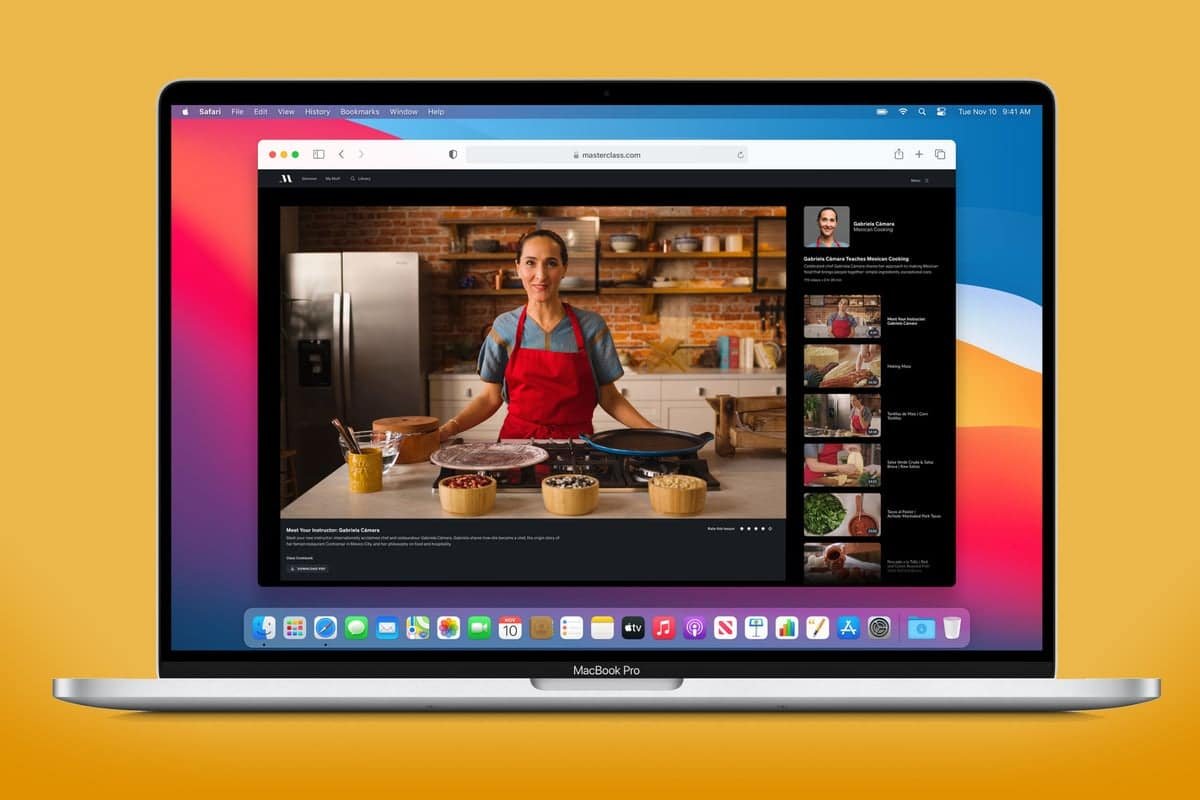
Apple is working with browser developers Google, Microsoft and Mozilla to make web design technologies more consistent, regardless of which browser the user trusts.
When is a standard not a standard?
The problem is that some browsers handle web technologies in different ways. This could give rise to the adage: "When does a standard stop being a standard?" When it is a web standard.
But when it comes to developers, especially enterprise developers trying to build consistent web interfaces across platforms, products, and browsers, it becomes a sore sticking point. It seems that browser developers have a growing understanding of this, hence the new group.
The goal of the Interop 2022 alliance is to determine how these different vendors implement web standards. It follows similar work that took place as part of the Compat 2021 consortium.
The latter has seen some success: "The progress we've collectively made in 2021 has been incredible, and with increased vendor participation and an even broader range of interoperability areas to address, we look forward to seeing how far we've come." where the web platform will evolve this year," wrote Daniel Libby, Senior Manager of Software Engineering at Microsoft Edge.
What is Interoperability 22?
The goal of the project is to try to ensure that web applications based on these standards work and look the same in the dynamic forest of different devices, platforms, and operating systems. Hopefully one day web developers can be sure that the experiences they provide are consistent for all users.
"The hope is that we can move into a future where we know how to make these domains interoperable, update the relevant web standards for them, and measure them with tests like we do priority domains," Mozilla said.
Interop 2022 tests 15 web platform specifications and three features that are not yet fully developed. What is tested includes cascading layers, color spaces, CSS color functions, scrolling, and more. Improvements in all of these areas will likely be welcomed by developers, users, and platform operators.
You can see the current results here and view the test panel here.
Why Interoperability 2022?
In a nutshell, it only looks at the user experience/design, rather than delving into the browser code. This means that browser developers do not need to unlock access to core features to competitors, which they would rather not do.
Interestingly, this attempt comes as a group of web developers have come together to complain about the limitations of WebKit in iOS development. Specifically, they complain that developers of other browsers have to use WebKit, rather than their own technology. Industry watchers say Apple is unlikely to approve this request, not only because it could accentuate Safari's limitations, but also because it could affect hardware performance, security, and battery life.
This may or may not be relevant to Apple's involvement in Interop 22, but anything that allows different browsers to work more consistently will likely help mitigate criticism.
what apple said
Writing on the WebKit page, Apple Evangelist for Web Developer Experiences Jen Simmons said:
“All of these technologies are important to Apple and to everyone who works on WebKit. We care deeply about the health of the web and interoperable implementations of web standards. We welcome working with our colleagues in the many web standards organizations and Interop 2022 to make the web as interoperable as possible. Because that's how websites and web applications will work best for the people who matter most: the everyday people who use the web to live their lives.
Critics of the company will note that Apple hasn't sped up the implementation of certain web APIs that could help developers build web apps to compete with native iOS apps. Of course, Apple isn't the only one lagging behind in implementing certain standards: Google has also stumbled, particularly when it comes to privacy.
Regardless, it looks promising that major browser developers are discovering that the jaw is waging war on war. Perhaps we all would have benefited from having learned this lesson more thoroughly in school.
In related news, Apple has also released Safari Technology Preview 141. It includes a range of enhancements including Web Inspector improvements, web animation fixes, CSS fixes and new behaviors, and improvements to JavaScript, WebAuthn and more.
Follow me on Twitter or join me at AppleHolic's bar & grill and Apple discussion groups on MeWe.
Copyright © 2022 IDG Communications, Inc.